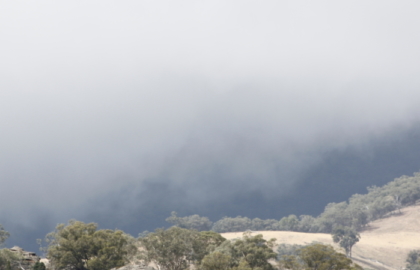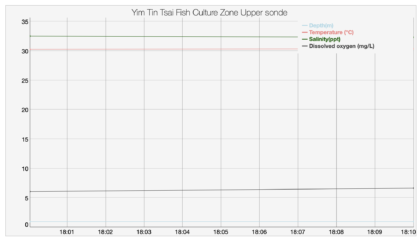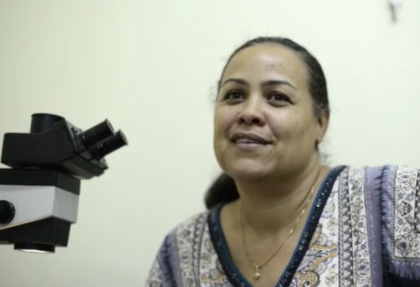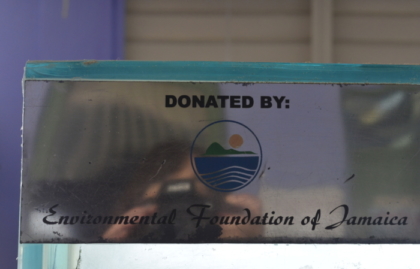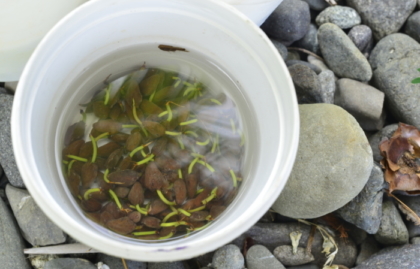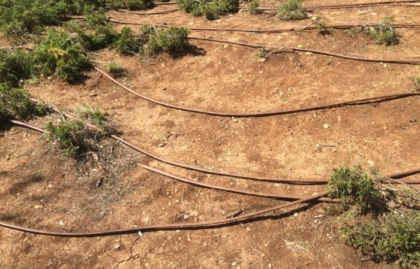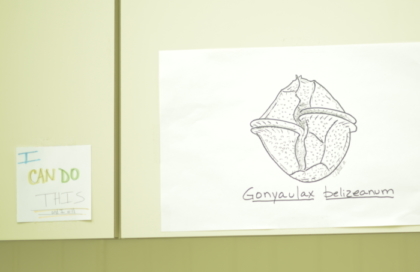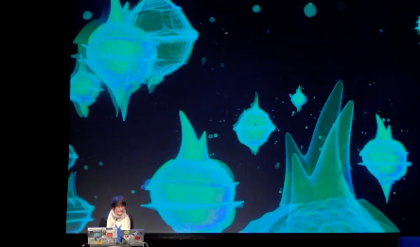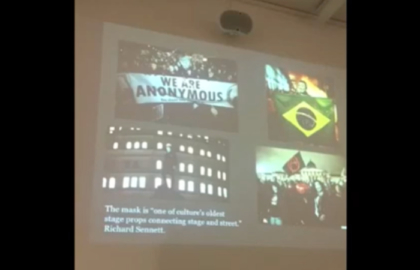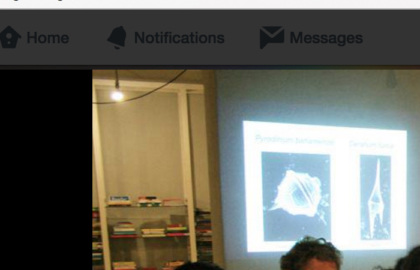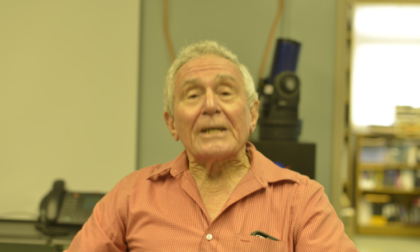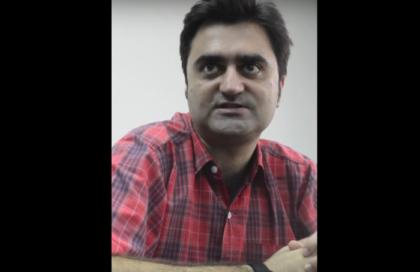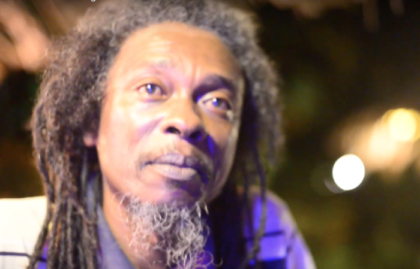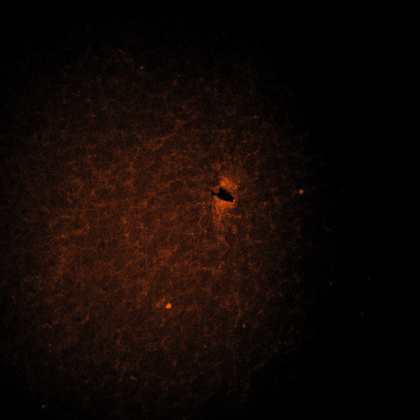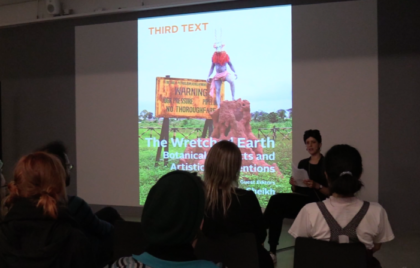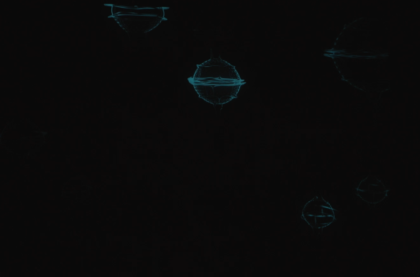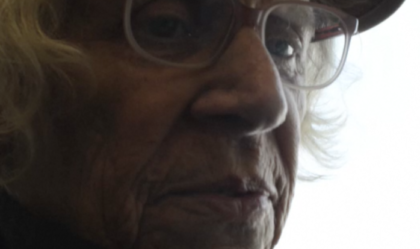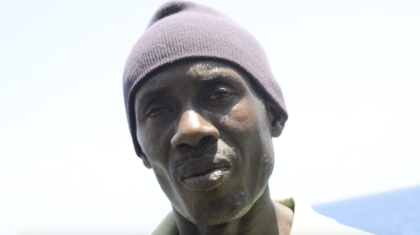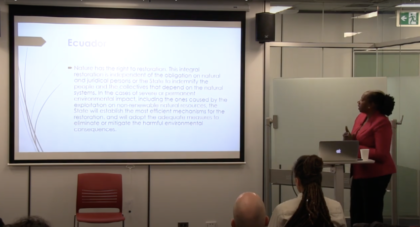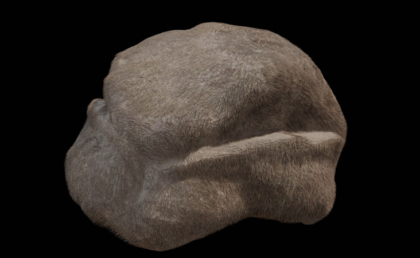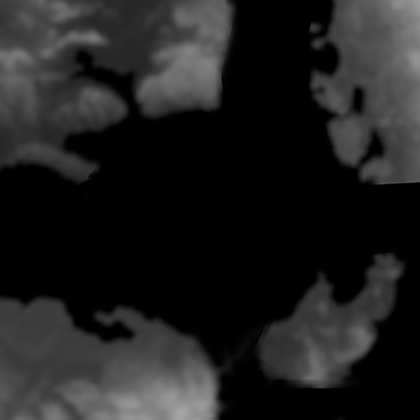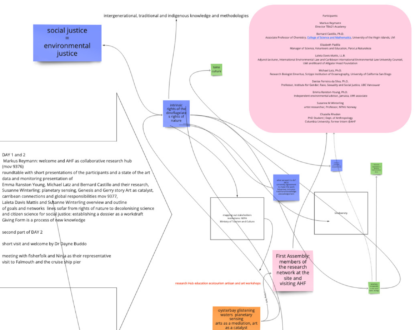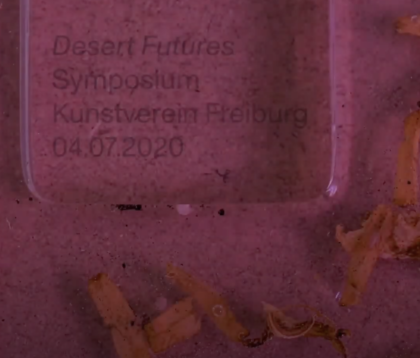more particles
the imperative to make the imagination flexible
Gayatri Chakravorty Spivak and Susanne M. Winterling
SMW: In a recent interview you mentioned „critical intimacy“.[1] I connected this expression with embodiment and wondered if it could be an anchor for a practice of solidarity across struggles (positioning yourself and sharing struggles and resistance in relation to class, race and gender) in the rootedness of a body?
GCS: There is no such thing as physical presence. We interpret something as physical presence: When the stomach twists, we say it is hunger. The body is the most abstract thing there is.
SMW: What is a stomach twist then?
GCS: I don’t know… but it is not supposed to be hunger. We interpret it as hunger. The body is interpreted by us as one thing or another. Which is why very often when a real disease starts we don’t even know it. On the other hand, if you cut yourself with a blade you really feel: my goodness there is so much blood… the outer skin is much more interpretable for us.
I remember when I was very young and I just started menstruating, I had a nonstop cycle, I was very young, not even 12 years old, and very troubled by this. My father was a doctor. My mother tried to console me but I would not be consoled. So my mother said to my father: tell her something. My father sat down with a big jar of water and a glass of water and said to me this is how much blood we have in our body and this is what you just bled out. This is not a disease this is just something that is happening to you.
Women in fact can have two signals from inside the body, he said, men only have one. Both men and women feel hunger when the stomach twists; women also feel cramps when the uterus twists. What he said next was not completely logical but just to console a child. When you are hungry you don’t take an aspirin and lie down and shut all the windows. So, when you get cramps, don’t take an aspirin and lie down in the dark; move, run, and the cramps will disappear. That was advice from a father to a daughter, and I learned incidentally that you interpret what happens inside your body.
This is why Nietzsche said that the human being is tied to the back of a tiger – The body is an abstraction. We think it is the most concrete thing in the world because we need to say so. Indeed, the way we interpret our bodies is historically, culturally, anthropologically determined. For example: starving, fasting, anorexia may be seen as basically the same physical phenomenon. Yet our interpretations of these are diverse, including abnormality.
When I wear western clothes I relate to my so-called body differently, tucking in my stomach, from when I wear a sari letting it go to hold it in place. Undoubtedly there is something that is called a „body“ in English and all kinds of other things in the world’s wealth of languages. It is something that we have to think of as concrete; otherwise we are hopeless in the world. That is a very different thing from it being concrete.
SMW: So it is an explanation? It is a tool?
GCS: The fact that it is a useful explanatory tool does not make it true. I have a spinal disease and I am out and about, my doctor is a little surprised:
Why is my pain threshold so high? I think it is because I am from an older culture, where women were trained to deal with pain in a different way. An overemphasis on the body I see very much as a U.S. phenomenon, an influence of the 1960s and feminist culture. I find it more interesting to think that the head is a part of the body. I think thinking is much more interesting than explaining everything in terms of the concreteness of the body. Over the past 30 years I have worked with people who were millennially denied the right to abstraction. I do think this emphasis on the body is altogether locatable in a time and place: The Euro-U.S. of the 1960s’ academic feminism.
SMW: Epistemology does not have to be concerned that much with physical presence or does it?
GCS: It can be. All that brain research on how much blood comes in — I just saw on TV this morning a news item about the President of the Philippines who laid off swearing. An explanation was offered by the author of a book who explained that when you swear you get blood into your fingertips, brain, etc.
Swearing is completely unconcrete. It is tied to language and generally offensive to women, which proves that rape is universal rather than the concreteness of the body.
The body is a very good explanatory tool.
Rootedness in a body? My advice would be to get away from it. Otherwise you are too focused. You will make yourself more flexible if you get away from a rooted idea. The most important thing for me is imaginative flexibility; It allows you to go towards other people. If you remain so rooted in one thing that allows yourself to be anchored, you will never learn anything new. You will easily reduce everything to it and you will not be flexible in your imagination. That is the bottom line. It is hard. I have the same problem. I want everything to be a rearrangement of desires. It is a solid nice point. But it might be a good idea not to reduce everything to that particular idea.
When I began teaching in the rural schools I went with the assumption that I had to encourage independent thinking, freedom of thought and so on. I had to sacrifice it slowly and realize that the free mind is not inherent to human beings. It is historically produced through the encouragement of intellectual labor. When it is systematically and millennially denied to a class, caste, race, or yet gender, freedom of thinking is lost.
You have your body to work with, that nobody can deny. But theorizing goes completely towards other people. You can even say that it is an escape from the body.
SMW: Your concept of reimagining the planet can that be connected to social and ecological justice?
GCS: No. It is an imperative to re-imagine the planet. 1997. This is an order; an imperative; Reimagine! How do we re-imagine? If you look at my entry on „planetarity“ in The Dictionary of Untranslatables, edited by Emily Apter, which is actually a translation of a French text by the philosopher Barbara Cassins, you will see that I suggest that a focus on „social and ecological justice“ is the „dogmatic“ way. The planet gives a damn. It is so other that it does not consolidate ourselves by being „our“ other. When I talk about „planetarity“ we cannot think the planet; that is what it means to say that the planet is in the species of alterity. It is in the rules of the galaxy and the planetary system and we cannot touch it. The planet has gone extinct before not because human beings did anything. Thinking planetarity can show us our limits.
SMW: Does that refer to ethics?
GCS: The imperative itself might refer to ethics. It may be a representation of the ethical. Freud said that in literature we sometimes see things represented that we do not see in life.
So let me explain by way of a literary example; the relationship between the white whale and Captain Ahab in Moby Dick is an ethical one. It is a different mode from our self-righteous decision that we must save the planet. That is another issue.
That might be the greatest ethical problem the human faces; to accept the fact that the human is made for extinction.
Of course we must cultivate the habit to save resources. But to re-imagine the planet refers to a different task. That is why there is an imperative. In other words, the ethical is not just self-righteous doing good. If you look at the chapter on the Schöne Seele in the Phenomenology of Hegel you will see absolute self-consciousness as the absolute Unwahr — the absolute untrue. The ethical appears away from consciousness.
If you call this an abstraction, we may be impatient with abstractions, but that is an elite impatience of those who have the permission to abstract. Very poor people cannot conceive of the obligation to save the planet.
I talked on the mobile phone the other day to one of my supervisors in rural India. I asked him to take notes. He said he was standing with his wife bare-bodied inside the forest cutting wood so they could cook. Where was that wood from? The national forest. There is no way that the idea of saving the national forest can be anything but „enforced“ here.
Yet the imperative to imagine planetarity travels from pre-literate animism all the way to the white mythology of rationality because the idea that there is something which we cannot account for beyond the real world is accessible to this broad spiritual spectrum. I am asking people to acknowledge this rather than only engage in the officious vanguardism of enforced environmentalism. That is why I speak of an imperative which has little to do with the a-political idea that we own a planet, without boundaries, and we have to look after it.
SMW: Yesterday you made a comparison between Marx and Gramsci, saying Gramsci died in jail, making a general point about the relationship between epistemology and practice.
GCS: Not a general one. I am talking about bad men. You have to take Mussolini into account. We are talking about male leadership, and there I am with my friend Hazel Carby and her book Race Men (1998).
The imagination is different from epistemology — the science of knowledge. It is dangerous just to rely on the imagination.
And that is also why when the subaltern is epistemologically prepared, s/he is a threat. Democratic judgment in the subaltern is a threat. Because Gramsci was engaged in the epistemological preparation of the subaltern and the proletariat, he was said to have been imprisoned because „such a mind must not be allowed to think for the next 20 years.“ Punishment for epistemological engagement.
Marx thought, as many people still think, that if the working class owned the means of production, they would want to use capital in an unselfish socialist way rather than in a greedy petty bourgeois capitalist way.
But he was wrong. This desire would not emerge on its own. Thus Gramsci understood that Marx’s project was an epistemological one.
SMW: To forget the need of understanding this difference might be a reason for the rising inequality and systemic violence?
GCS: There are two things to say to this: One has to do with education. Thanks to the silicon chip worldwide the emphasis is now on ease of learning and speed. The fact that the soul has to be slow cooked just as the muscular body has to be slowly nurtured is not understood.
And the second idea is that if you think a group of people as less valuable than yourselves, you will produce violence as a response.
This is Fanon’s point. If you consider the pre-history of what we now call the Middle East, starting from the subduing of Byzantium, through the Sykes-Picot Agreement of 1917, and the evaluation of Palestinian lives by Israel, you can see the production of the will to kill in small children.
SMW: And we are all planetary creatures?
GCS: It is trivially true that we are planetary creatures. But we cannot turn planetarity into the production of an adjective for ourselves.
My main point is that if we re-imagined the planet in the „species of alterity“, this will travel from pre-literate animism to the white mythology of rationality.
I am interested in ideas with a very broad range. “Democracy as other people’s children“ travels from the subaltern to the elite. The elite team which does the Human Development Index count the years of schooling — quantity — for their statistics. But when they look after the education of their own children, they are very careful to look for quality. Therefore democracy as other people’s children can be a lesson against the near-universal tendency to focus on one’s own children. If this is called „liberal biopolitics“ by elite theorists they should understand that liberal biopolitics can work across a very broad spectrum of society in the interest of democracy. And they should become more flexible.
1. See also https://lareviewofbooks.org/article/critical-intimacy-interview-gayatri-chakravorty-spivak/#!
Gayatri Chakravorty Spivak is a University Professor and a founding member of the Institute for Comparative Literature and Society at Columbia University. She spoke with Susanne M. Winterling on the occasion of http://berlinergazette.de/deutsch/tacit-futures/
A conference on the commons in Berlin and has been in conversation on stories of aesthetic solidarity over the past 3 years for an upcoming publication with archive books
See also http://www.nytimes.com/2016/07/13/opinion/when-law-is-not-justice.html?_r=1
